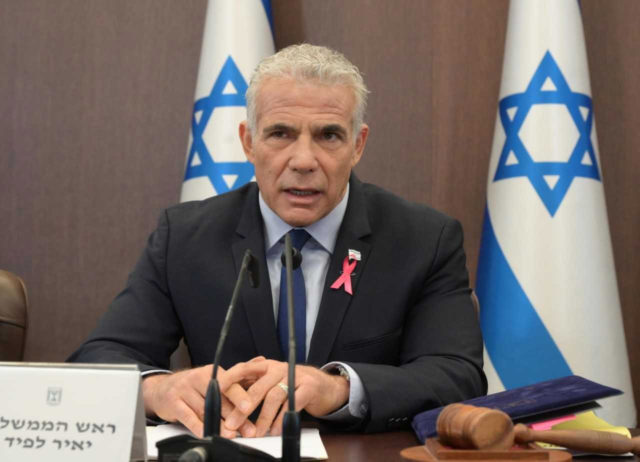The White House is taking a bow for success in achieving US-Israel and US-Lebanon agreements to delineate a maritime border between them that will allow Lebanon to begin exploiting the natural gas resources in the Eastern Mediterranean Sea. Not so fast.
The details have been released and a few serious points deserve attention. First, there is no change to the state of war that Lebanon maintains against Israel, thus all papers, letters and agreements are between the each country and the United States – not between the parties. Each country will submit a letter to the UN, which will be the arbiter of the agreement. And, while there is a phrase about the two planning “to meet in the near future,” there is no guarantee that a) it will happen, or b) when.
Lebanon, a once-lovely, once-prosperous country, is now an insolvent pit that has its people scavenging in dumpsters for dinner. The Syrian civil war; Iranian-proxy Hezbollah’s capture of the south and installation of tens of thousands of missiles aimed at Israel in violation of UN Security Council Resolution 1701; COVID-19; a Hezbollah-dominated government in Beirut; and corruption-plus-general-governmental incompetence all contributed. Utterly broke and without a functioning government, Lebanon is in the midst of a national nervous breakdown.
According to The Council on Foreign Relations, “Military experience gained from fighting in Syria’s civil war and decades of clashes with Israel have made [Hezbollah] stronger than ever, but the biggest threat it faces may be upheaval in its own backyard.”
The Lebanese people are fed up with their corrupt and militaristic government and have been in rebellion since October 2019. You could be forgiven for thinking the best thing for the US to do would be to help them get rid of Hezbollah and Iran. The United States, however, decided that the answer is to put more money in the hands of Hezbollah. So, the US set out to negotiate that treaty – sort of.
Negotiations work best when the parties agree on an endgame and discuss – even acrimoniously – how to get there. [Think MLB strike – players and management agreed that a full season of baseball was the goal. Each side put out a maximal position and worked backward. They got their season.] Furthermore, a treaty is only as useful/valid/good as the government that stands behind it. Some adhere to their commitments and some cheat. Some cheat a little bit and some cheat a lot.
None of that happened. In fact, the whole exercise resembles the American experience “negotiating” with Iran in Vienna. American interests were handled by others, including Russia and China, while the American “negotiators” sat outside the room negotiating nothing.
One “pro-deal” observer enthused, “The ability to generate and implement common interests is a calming and restraining element. Lebanon is a broken, insolvent country on the verge of anarchy, and the money it would gain from gas drilling would help it stabilize.”
Israel’s Prime Minister Yair Lapid agrees. “We do not oppose the development of an additional Lebanese gas field, from which we will of course receive the share we deserve. Such a field will weaken Lebanon’s dependence on Iran, restrain Hezbollah and promote regional stability.”
On the other hand, Lebanon appears already to be rewriting the deal. Wanting the revenue, but apparently unwilling to write a check to Israel for required royalties from the Lebanese treasury, analyst Hussain Abdul Hussain reports, “Sophism led Hezbollah to say that Israel’s revenues will not be deducted from Lebanese money, but from the [French energy company] Total, as if Total would pay Israel out of its own pocket.”
And even the White House thought it necessary to hedge. “It is now critical that all parties uphold their commitments and work towards implementation.” Shouldn’t that be a “given” in a new agreement? Why isn’t it?
To make things more complicated, in Israel, concession of sovereign territory requires a 2/3 majority in Knesset or a referendum. The law was designed to apply to the West Bank and Gaza. How it will apply to the maritime border with Lebanon is not clear, but there is little time left before the next Israeli election – and what happens if the government changes is also unclear.
At the end, Americans generally like to believe that governments are good and that if you provide them with resources, they will feed, house, clothe, and advance their people, living in comity with the neighbors. Some are and some do. Hezbollah is not among those.
In its quest for a deal before the US elections, the administration has put Israel in a shaky position next door to a country that will not even sign a check for them, let alone sign a border treaty or a peace agreement. And it abandons the Lebanese people to the forces of Hezbollah and Iran. Perhaps the best that can be said, was written by an astute observer, “This deal, if done, will mark the first time Lebanon can make the leap into obtaining something it seeks by agreement more economically than by violence.”
Maybe. Let’s hope.
An earlier version of this article appeared in The Daily Caller.


